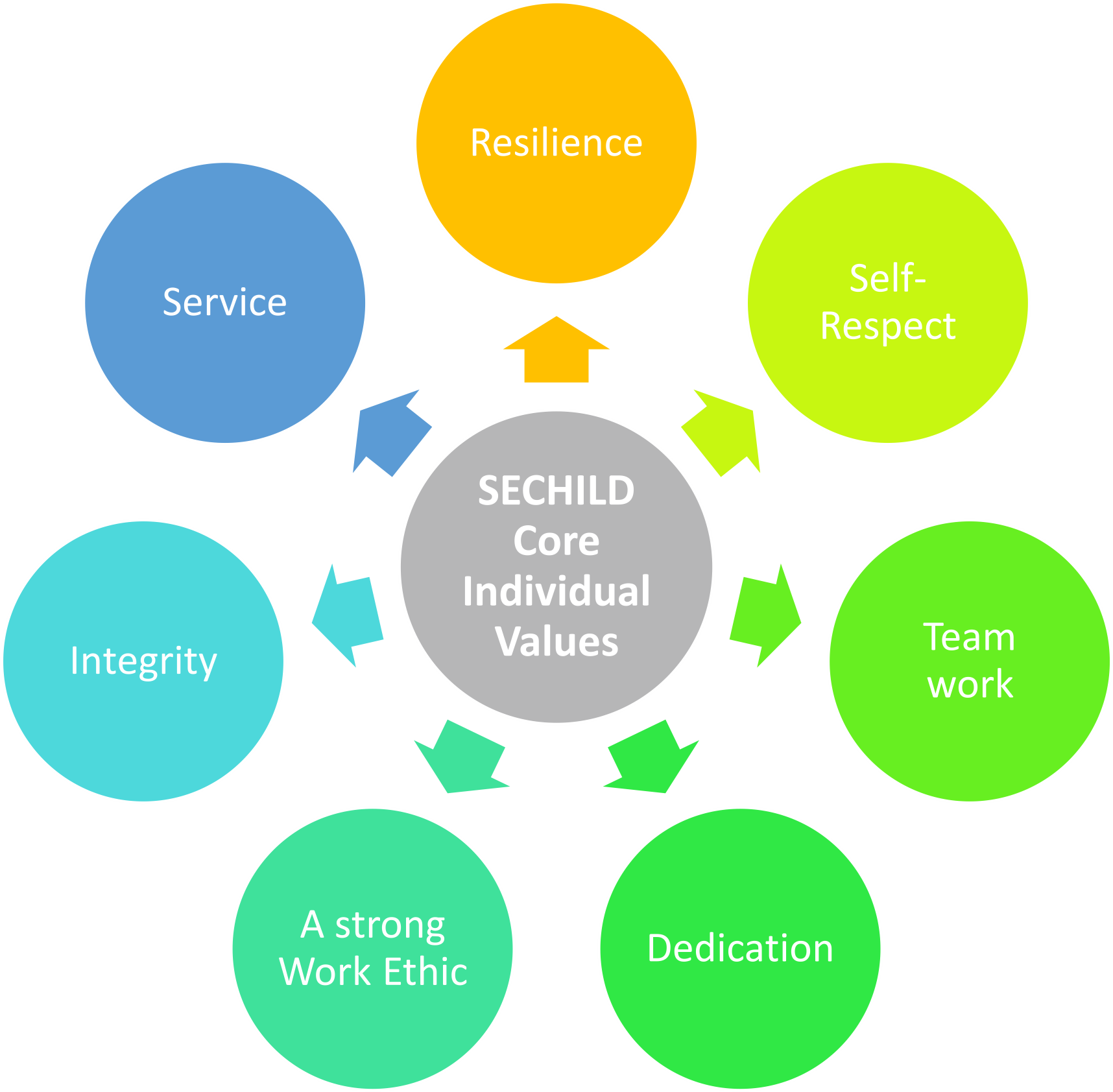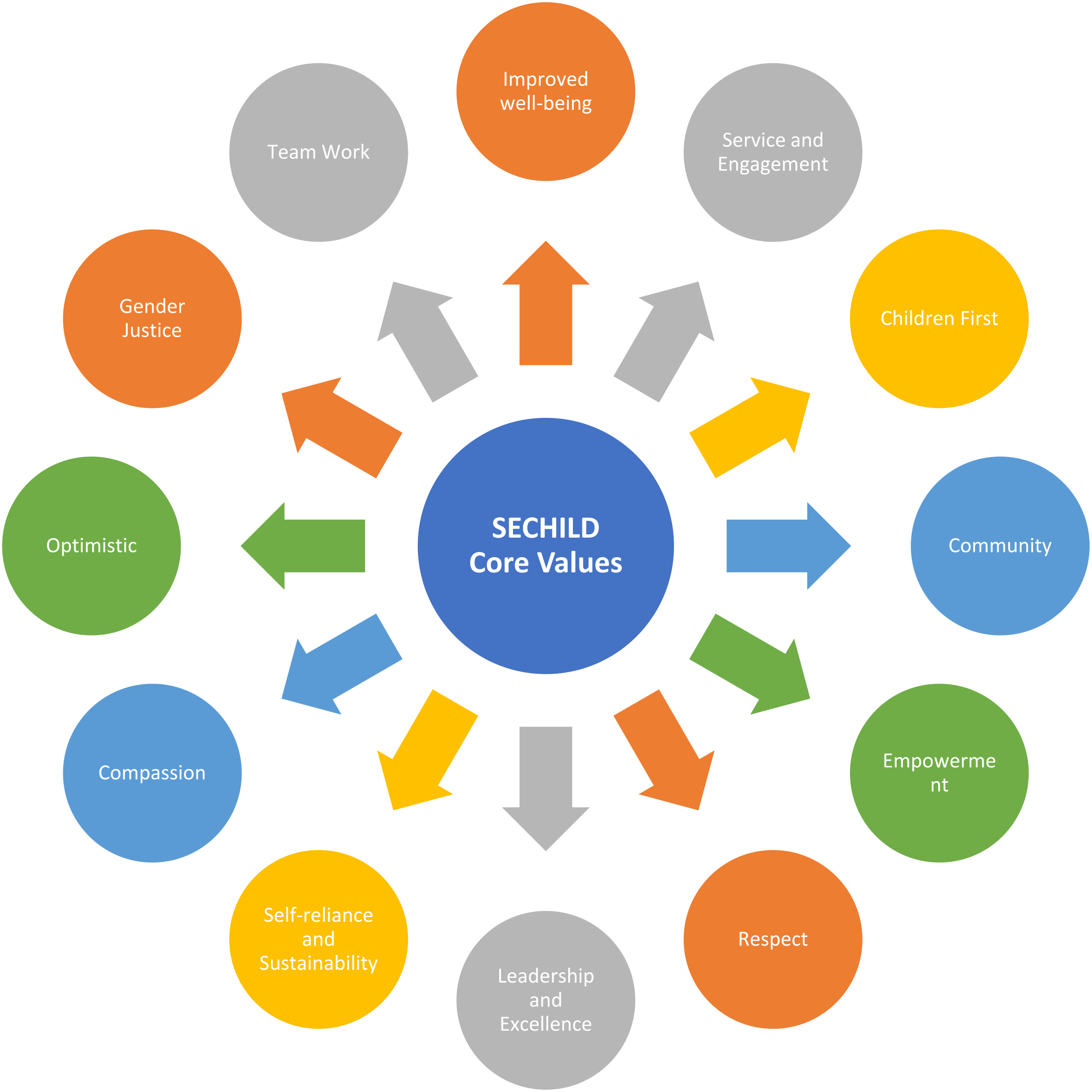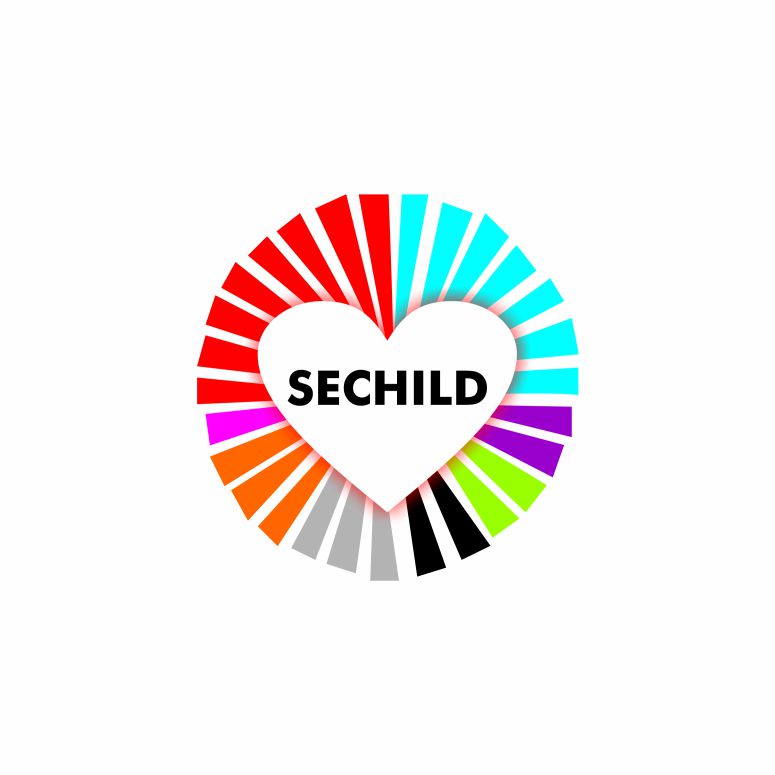How we came to be
SECHILD emerged from Kawan Aondofa-Anjira’s (the Founder) profound journey of raising their two biological children, both diagnosed with Cerebral.
Sedoo, Kawan’s second child, was born on August 22, 2005. Expecting her was a joyous experience. But the moment Sedoo arrived, Kawan felt a deep immediate fear; she knew something was terribly wrong. Sedoo struggled to breathe, her eyes wobbled, her skin was highly pigmented, and she cried incessantly through the night. Despite her husband’s initial reassurances, Kawan’s concerns persisted.
Various treatments and hospital visits offered no improvement.
At two months, Sedoo was unable to follow objects, prompting a visit to an ophthalmologist. Painful treatments and further consultations revealed that Sedoo had ocular albinism, and at six months, glasses were prescribed in hopes of correction. Trusting in divine intervention, Kawan held onto hope, but Sedoo’s condition did not improve.
A visit to the National Hospital in Abuja led to a devastating diagnosis from the Pediatric Neurology clinic: Sedoo had brain damage and was unlikely to ever roll, sit up, feed herself, stand, walk, or contribute to herself or society. The doctor diagnosed her condition as Cerebral Palsy, compounded by poor muscle tone, nystagmus, and severe underweight.
“Oh God,” Kawan prayed, “Please help me love Sedoo.” Initially, whenever Kawan looked upon Sedoo, her heart broke afresh, all she could see was her prognosis. It was as if the prognosis was more of a person than Sedoo was. This prognosis was like a living creature relentlessly torturing her. Kawan couldn’t seem to get past it and see Sedoo for the sweet little girl she was.
On January 18, 2007, Kawan’s depression deepened with the birth of her third child, Aondofa. He bore a striking resemblance to Sedoo and displayed similar symptoms of brain abnormalities, adding to Kawan’s despair. Feeling abandoned by God, she questioned His love and purpose for her family.
As Sedoo’s therapist noted slight improvements, Kawan’s heart remained heavy with the weight of what Sedoo couldn’t do. Sedoo’s inability to play or recognize her mother contrasted sharply with the joy her small smiles brought.
The struggle to find suitable care centers for her children while maintaining her job as a banker added to Kawan’s frustrations. Schools and relatives turned her away, some even suggesting drastic measures to relieve her of the burden. Despite the overwhelming lack of support, Kawan persevered.
Tragically, Sedoo passed away at 22 months on June 24, 2007. Aondofa, still in need of care, remained, and Kawan was determined to find a solution. Faced with discrimination and relentless challenges, Kawan founded The Sedoo Initiative for Children with Special Needs (SECHILD) on January 6, 2011, naming it in honor of her daughter Sedoo. Aondofa became the first child admitted, receiving the care and therapy he needed until his passing at eight years old on June 16, 2014.
What We Do
- 24/7 Residential, Nutrition, and Personal Care: Offering balanced meals and assistance with daily activities, ensuring a nurturing environment.
- Therapeutic Services: Providing a range of therapies, including physical, occupational, speech, and cognitive rehabilitation, both inpatient and outpatient.
- Social and Recreational Activities: Organizing inclusive events to promote emotional well-being and social skills.
- Support for Parents and Caregivers: Offering counseling, training, and empowerment to help families support their children’s emotional and physical well-being.
- Advocacy for Rights: Promoting the rights of children with special needs and working towards policy changes for their inclusion and protection.
- Community Engagement and Awareness: Conducting campaigns to educate the public and foster inclusion, reducing isolation and promoting a sense of belonging.
- Promote Inclusive Education: Ensuring children with special needs have access to quality education tailored to their requirements.
- Disability and Mental Health Support: Addressing both physical and mental health needs, offering psychosocial support and building self-esteem.
- Disability and Gender-Based Violence: Implementing strategies to protect and empower children with disabilities, particularly against GBV.
- Collaboration: Partnering with government, NGOs, parents, caregivers, other organizations, medical professionals, and communities to enhance support and extend our reach.
Our Strategic Objectives
- To advocate for the rights of children with special needs and persons with disabilities
- To provide and promote better delivery of special educational services/ development of children with special needs and persons with disabilities for more effective intellectual growth to create opportunities for self-actualization through sponsorships and trainings
- To provide shelter and rehabilitation for children with special needs and persons with disabilities
- To provide residence care, physio/occupational therapy, therapies for children with special needs and persons with disability to enable them attain their maximum potentials
- To sensitize and raise awareness on the impact of non-inclusion of disabled person and educate and re-orient the general public on myths and local beliefs disabilities particularly on children with special needs their acceptance and inclusion
SECHILD Core Individual Values
Any organization, staff member or stakeholder working, partnering or collaborating with SECHILD is expected to exhibit the following values:
- Resilience
- Self-Respect
- Team work
- Integrity
- A strong Work Ethic
- Dedication
- Service

SECHILD Core Values
- Improved well-being
- Service and Engagement
- Children First
- Community
- Empowerment
- Respect
- Leadership and Excellence
- Self-reliance and Sustainability
- Compassion
- Optimistic
- Gender Justice
- Team Work

SECHILD Strategic Intervention Pillars

